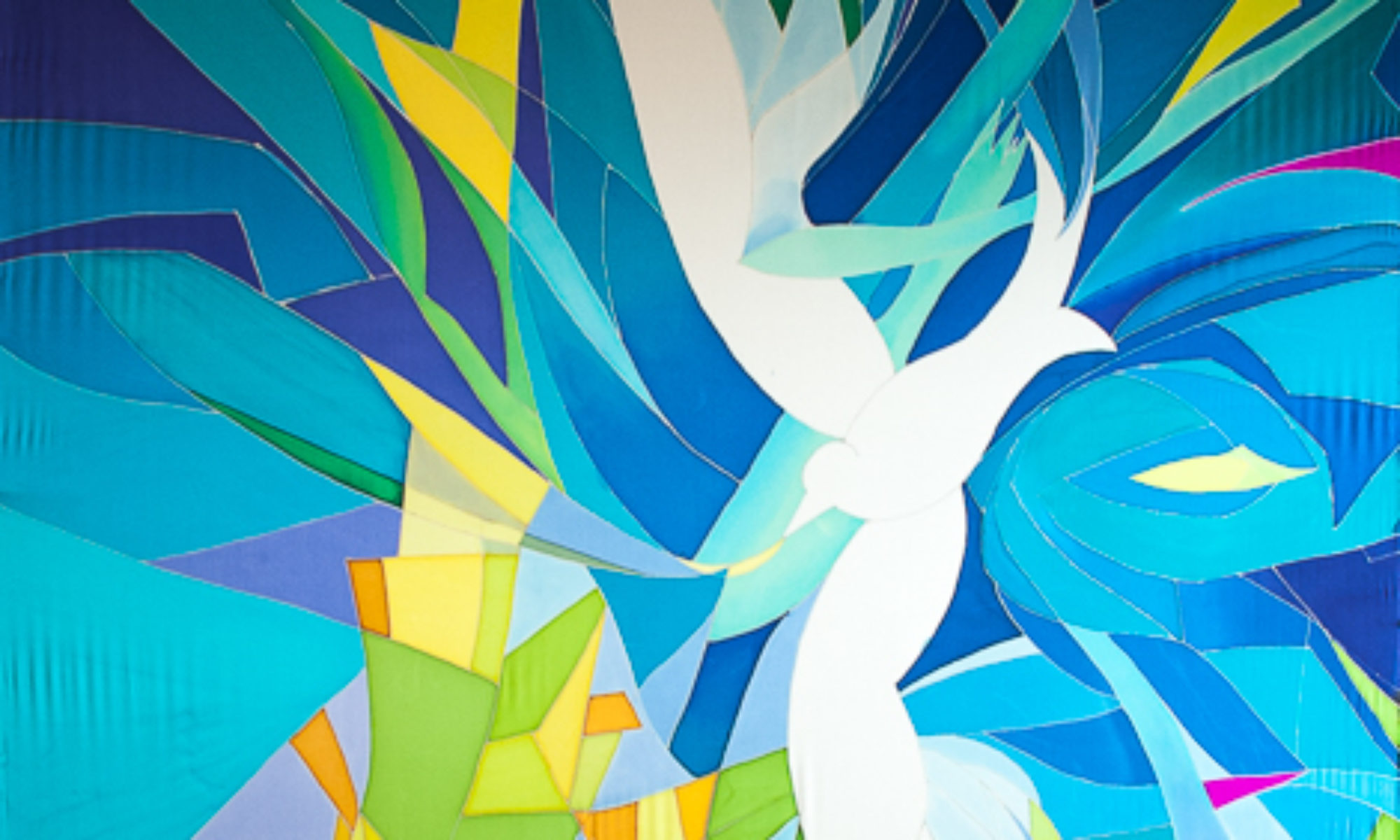Using stovepipe and propane burners to steam-set silk dyes

Once the silk dye has been applied to the silk, the dyes need to be steam-set to bond permanently with the fabric. Before steaming water can wash most of the dye from the silk, but after steaming water will not hurt the silk painting. The painting becomes permanent. (Except for direct sunlight! In direct sunlight the silk painting will fade. Indirect sunlight is fine.)

Here you can see the set-up I use to steam my silk. I am steaming “Zion’s Waterfall”, which consists of three silk panels: two are 37 feet by 28 inches, and one is 37 feet by 52 inches. The widest panel is being steamed in the tallest stovepipe, and one of the narrower panels is in the shorter stovepipe.
You can see the silk painting in different stages in earlier posts by clicking on the following:
River Theme for a Northwest Church, which shows the first attempts at a waterfall design, too realistic for the client; Waterfall Update, showing watercolor sketch of a more abstract design; next is Preparing for a Large Project on choosing colors, making the frames, and practicing; and Zion’s Waterfall 3/4 Done where you can see the 37 feet of painted silk rolled out on a big floor to see how it looks so far.
To steam the silk it is first rolled up in newsprint and brown wrapping paper, making sure there is room on the top of the roll to drill a hole through the top inch. I stick this paper/silk roll inside the stovepipe, then thread a wire through holes in the top of the stovepipe and the drilled hole through the paper roll. Now the stovepipe can be upended, with the paper roll hanging from the wire inside the stovepipe.
Next I stick the whole affair into a hotel-sized pot on a propane burner, fill the pot with water, seal the space between pot and pipe with aluminum foil crimped under the rim of the pot and taped with masking tape to the pipe, so there are no holes for steam to escape. I light the burner, and let the water boil and make steam for 3-5 hours, depending on how thick my roll is. Oh yes, the lid on top of the pipe is 1-2 inches of New York Times papers, procured from local co-op’s recycle bin, secured with masking tape to the top of stovepipe. Somehow it all works! I can tell if the steaming is successful in two ways: that the colors are more intense than before steaming, and when hand-washing (next step after steaming) that clouds of excess dye do not wash out of the silk, but just a little bit of dye that is not bonded to the silk.
If you want to do this process yourself there are more details to know for success. For now I can suggest Susan Louise Moyer’s book “Silk Painting” where you will find complete directions. I’ll write complete instructions later this summer for those interested.
